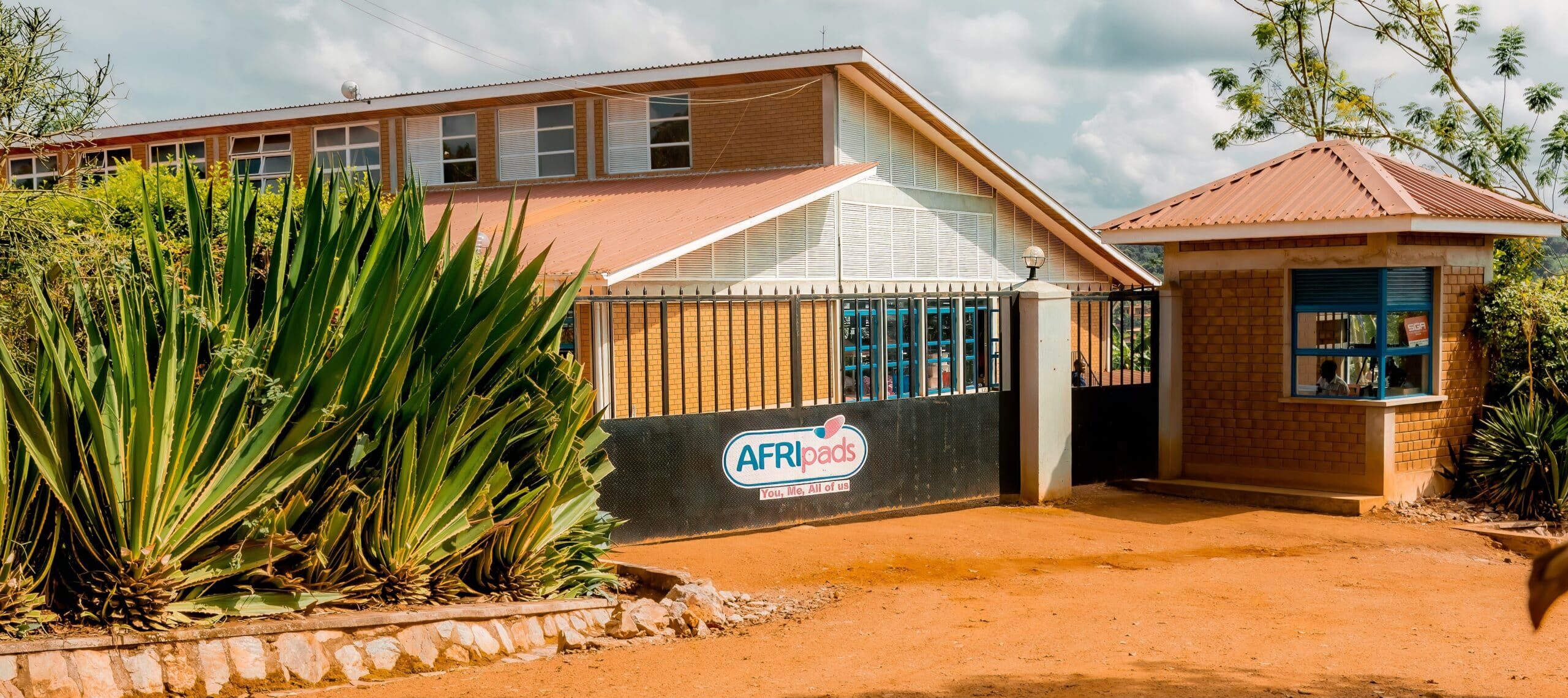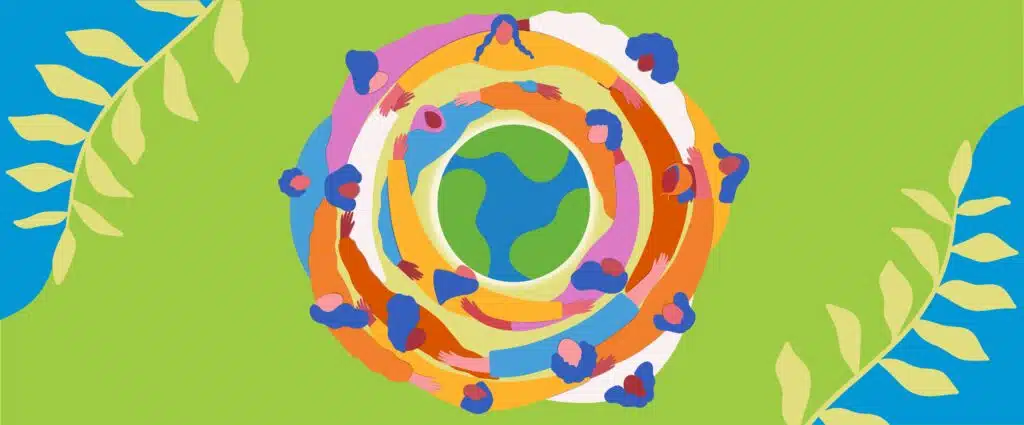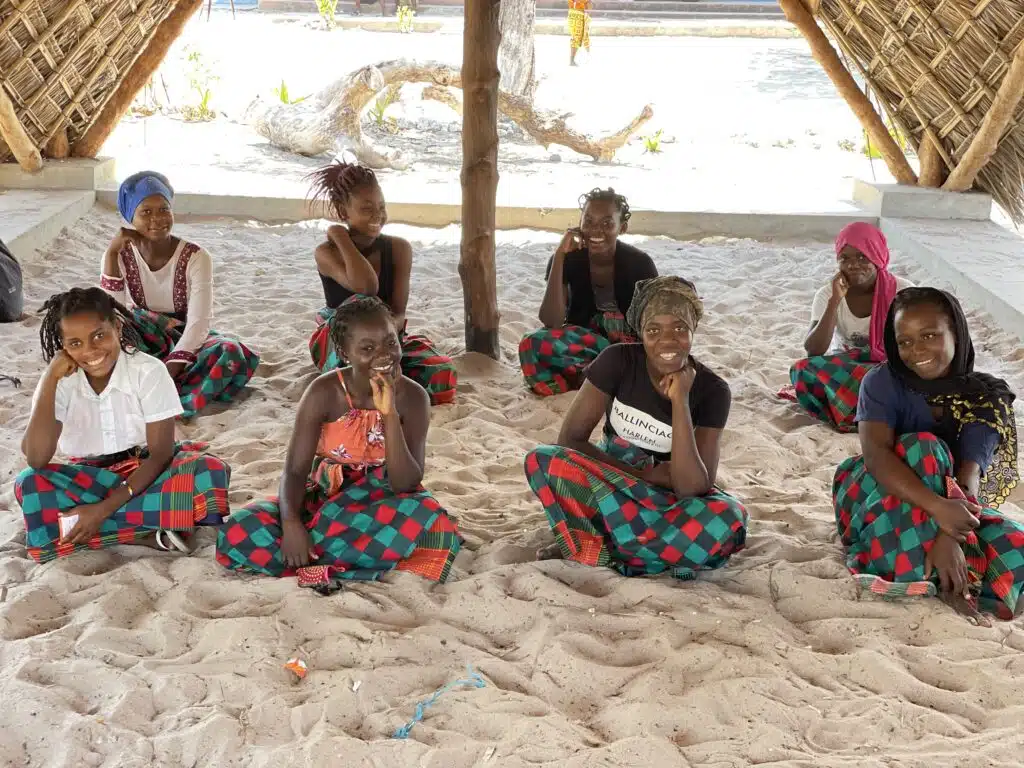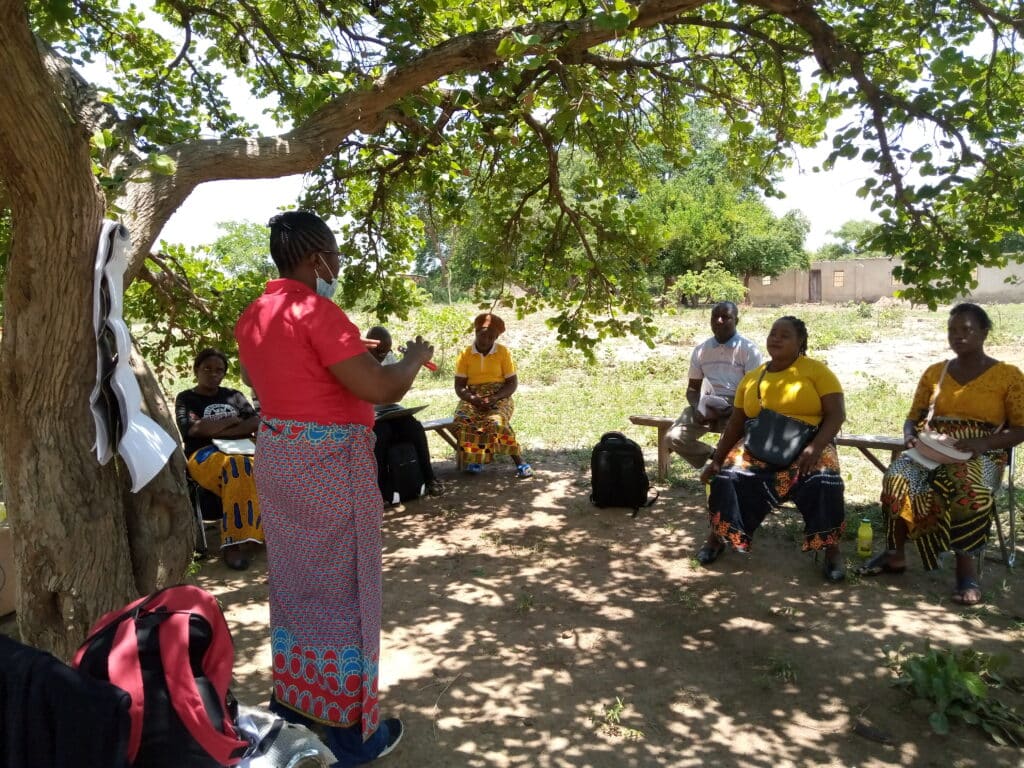Why are local social enterprises great partners in creating impact?
Because they have in-depth knowledge and broad experience with the products and services they offer in the local markets. They know the needs and challenges of the local population. They ensure that their solutions are equitable, context appropriate, and responsive because that is embedded in their mission and what their business is built on. How does that create impact?
● Reinvestment. The use of profits benefit the local community through job creation, training, education, and (female) economic empowerment.
● Sharpened program delivery. Understanding user needs and utilizing that evidence, knowledge and experience of local realities can ensure programs are focused on the right activities, can potentially have better outcomes, and avoid interventions which have already proven to be unsuccessful.
● Resilient supply chain. Working with local social enterprises will create a sustainable, resilient, local supply chain providing quality products at competitive prices. This helps to solve issues around access to those products for people who need them the most.
So why is there often hesitation from the public sector and their donors to form genuine partnerships with local social enterprises? And how can processes be improved to leverage the kind of impact social enterprise manufacturers can bring? That’s the advice AFRIpads, a Ugandan-based social enterprise manufacturing reusable sanitary pads, with support from Eco-Soap Bank, a nonprofit social enterprise that manufactures innovative soap products with factories in several global south countries, have put together here in this article.
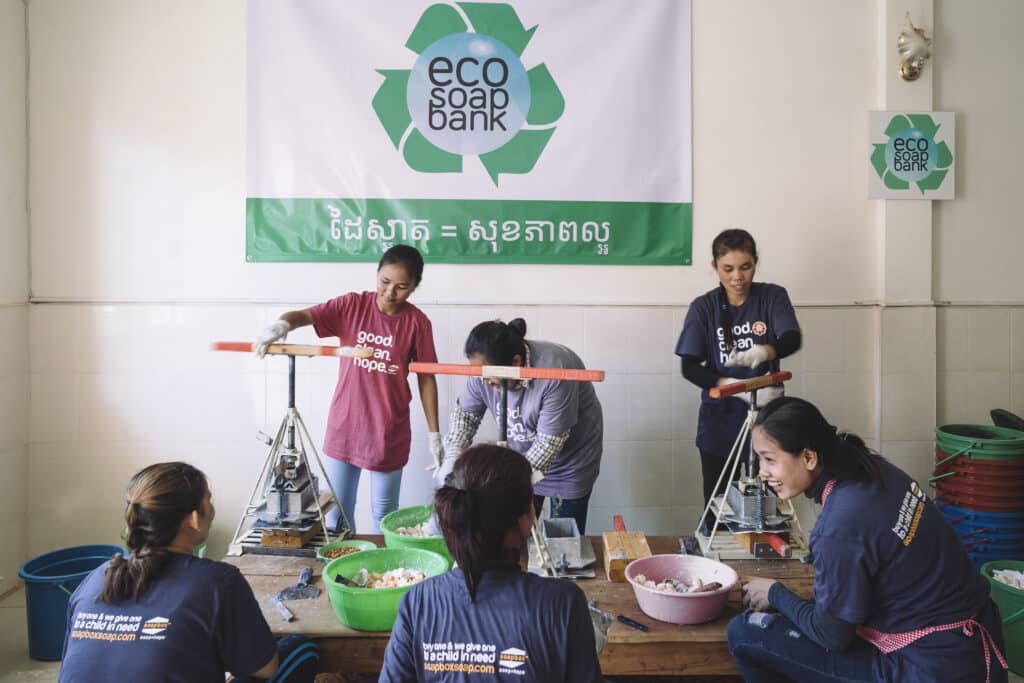
We recognize that many international funders are trying to implement their localization process, but we also know many are struggling to meet their targets – and particularly in the area of local procurement. This likely stems from a lack of awareness of the scale of social enterprises in the region and the products and services they offer. It’s also a symptom of a lack of communication and partnership with the local private sector. There are local social enterprise manufacturers perfectly positioned to play a role here. And we don’t think it should matter if these are registered as an NGO or a private company – so long as the missions are aligned and quality is ensured.
How can local social enterprises be better leveraged in achieving impact?
As AFRIpads and Eco-Soap Bank are some of those local manufacturers, we see specific opportunities to capitalize on the power localization can have through: genuine partnership on evidence and knowledge sharing and local impact-oriented procurement processes.
1. Genuinely partnering during the program design phase to increase success
The term partnership is widely used but often under-utilized in practice. Commonly, local manufacturers are only engaged for the purchase of a product or service as part of a broad procurement process, and after a program has already been defined and a budget is in place.
That is a missed opportunity. For example, we’ve seen program designs that only procure one menstrual product, a menstrual cup, for a region where we already know that it’s not accepted by the majority of people. That results in a waste of time and resources, and means that the end beneficiary didn’t receive a product she can use. Local players can make a valuable contribution when designing a program and procurement specifications, by sharing their knowledge and experience on local circumstances and practices.
Genuine partnerships can be formed to accommodate this knowledge sharing for program design, regardless of the procurement of goods or services: procurement can still be structured through the regular procurement process, also involving other suppliers.
2. Review and revise procurement guidelines to maximize local impact
Let’s start with what is the reason local procurement may be lagging in localization? One commonly cited cause is that there aren’t enough professional manufacturers or service providers in the region with the ability to meet the requested scale, quality, or compliance requirements. This can obviously be the case. But it is also the case that many procurement guidelines don’t have decision-making metrics to prioritize or support local impact through procurement from local (social) enterprises.
“This should not be used as an argument to not look for local options. Because they can be there. And by promoting local options in procurement processes, you will see that local manufacturing will be stimulated resulting in the ability to deliver higher quality and volumes.” – Joris Boon, AFRIpads CEO
Eco-Soap Bank often sees humanitarian and education partners procuring from large FMCGs or Multi-Nationals, rather than deciding to buy locally and investing in their local communities. “Ideally, the point of NGO procurement is to create an economic ripple effect in the countries of operation.” – Samir Lakhani, Founder and Chief EcoSoap Officer, Eco-Soap Bank
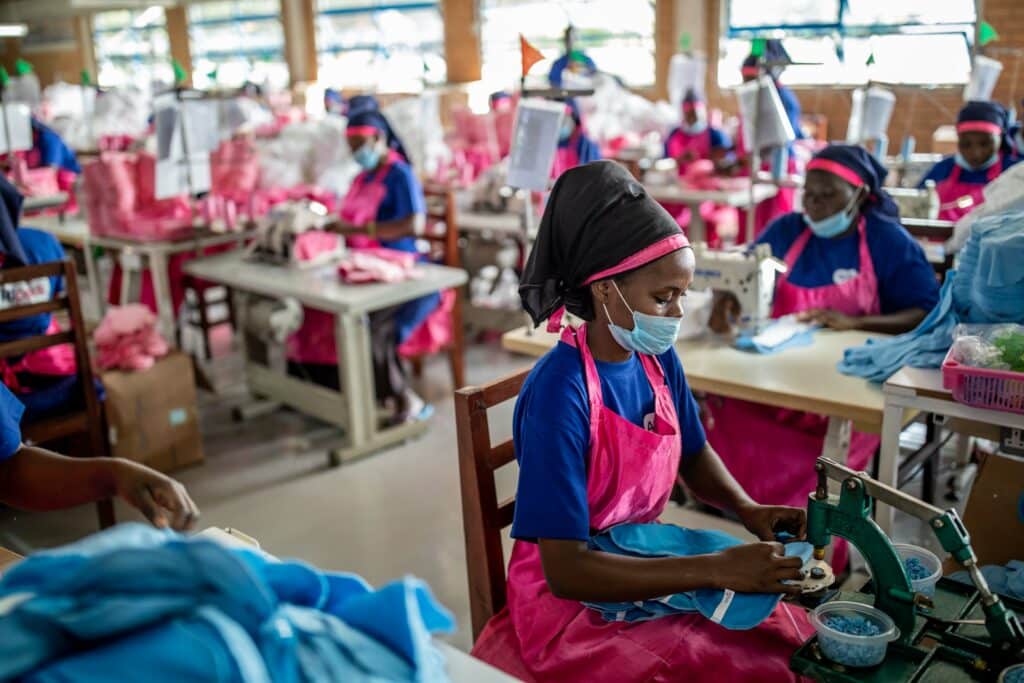
How to evaluate and revise procurement guidelines? Our advice is two-fold:
1. Implement impact parameters in evaluation rubrics for procurement.
Many do this already but it is often not focused on local manufacturers or service providers. What this means is setting potential local impact parameters when considering suppliers and their offering, i.e. how many regional jobs are created, where are the products produced, and where are the majority of operations based. Of course, these kinds of metrics come in addition to price and quality requirements but should also be given value when assessing bids. The score of the impact metrics can for instance be linked to an acceptable deviation on price considerations when comparing bids from suppliers.
If decisions are only made on price and minimum quality requirements as we often experience, then the result is generally sourcing from a multinational brand producing in countries with low costs and high efficiencies, without having a real local presence. This brings little to no additional impact to the region, economically or otherwise. When adding these impact parameters, local social enterprise manufacturers can be prioritized (and awarded) for the social return on investment (SROI) that they bring. Of course, we realize this also requires an acceptance that local procurement may come at slightly higher costs, but it also generates significantly more impact.
2. Involve social enterprise manufacturers in technical specifications of their ‘expertise product’ in procurement mandates.
This piece of advice is a natural follow up to our first point ‘including social enterprises during the design phase of the program’. Procurement specifications and metrics need to align with decisions made on program design. By including local manufacturers here, it provides not only ‘free’ R&D expertise but can also confirm the specifications which are appropriate for the context where products are intended to be used. A simple example: at AFRIpads, we come across procurement specifications of reusable sanitary pads for school-aged girls of which we already know, based on our own consumer research through pilot studies, the girls will consider the sizes too big and consequently not use them. Our responsive solution to this issue was to create a smaller pad and a ‘schoolgirl’ specific kit that is more appropriate for the needs and body sizes of that age group. By involving social enterprises with local knowledge and experience, procurement specifications can be aligned with local needs and practices.
Working across sectors creates a win-win-win
We realize that local players who meet the above-mentioned requirements may not be available for all products and services in all regions, but when those are found and selected, partnerships can be formalized through (long term) framework agreements. The benefits of a framework agreement then are on the one side mutually beneficial and mission aligned upsides from experience and knowledge sharing and on the other side a confidence in procurement through inclusion of local social enterprise manufacturers in (general) processes that have local impact parameters for bid evaluation. Formalization boosts genuine partnerships with local social enterprise manufacturers! And the final win being perhaps the most important, the benefits which local end users receive from having access to high quality, critical products.
Our hope is that with this advice, working with local social enterprises can take a multi-faceted approach beyond only procurement at the lowest price and minimum quality requirements. If implemented, the public sector can:
- achieve a much higher SROI through sustainable, long-term quality job creation,
- contribute to the success of quality products on the local market, and
- accelerate the health and education outcomes for local recipients.
After all, what is this work for if not to make the biggest and most sustainable impact possible?
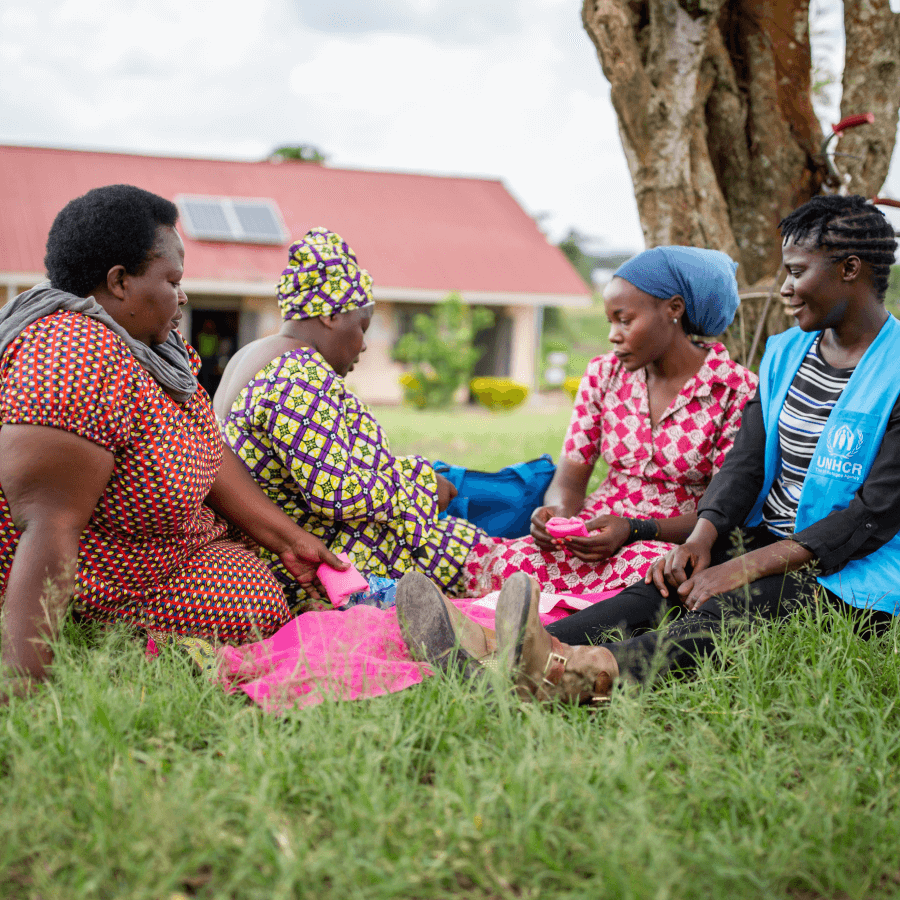
About AFRIpads
AFRIpads is a Ugandan-based social enterprise, leading the sector on manufacturing high quality, reusable sanitary pads and underwear. Their use of evidence in both product and training development has made them a leader in the MHH sector. Since launching in 2010, they have reached 6 million women and girls with menstrual products and education – contributing to increased school attendance, school completion rates and female participation in the workforce. Read about the economic impact of the AFRIpads factory here.
As an advocate, they contribute to breaking the stigma surrounding menstruation and work with governments to recognize that access to affordable and quality menstrual products is a human right. Menstruation is natural and normal. AFRIpads sees sustainability in the products, the training model and in the choice to register as a private company with a viable financial model. However, profits are channeled to further the social mission of closing the gender inequality gap.
Contributing authors: Joris Boon & Michelle Tjeenk Willink
About Eco-Soap Bank
Eco-Soap Bank is a nonprofit, multi-national social enterprise that employs marginalized women in 5 countries in Africa and Asia to recycle leftover soap for redistribution to INGOs. The organization manufactures innovative soap products designed in partnership with end users such as SOAPLAY (bars for children), Soap for Humanitarian Settings, and normal bars of soap sold at ultra-affordable prices.
The organization has also invested in R&D to manufacture what they term ‘Nudge Soap Products’ with customized shapes for children, labels with hygiene promotion messaging, or simple innovations like ‘soaps-on-a-rope’. The organization has tested these products — SOAPLAY (fun shaped bars) — for example, and has seen a 354% increase in child handwashing frequency in school settings in Uganda.
Contributing author: Samir Lakhani
